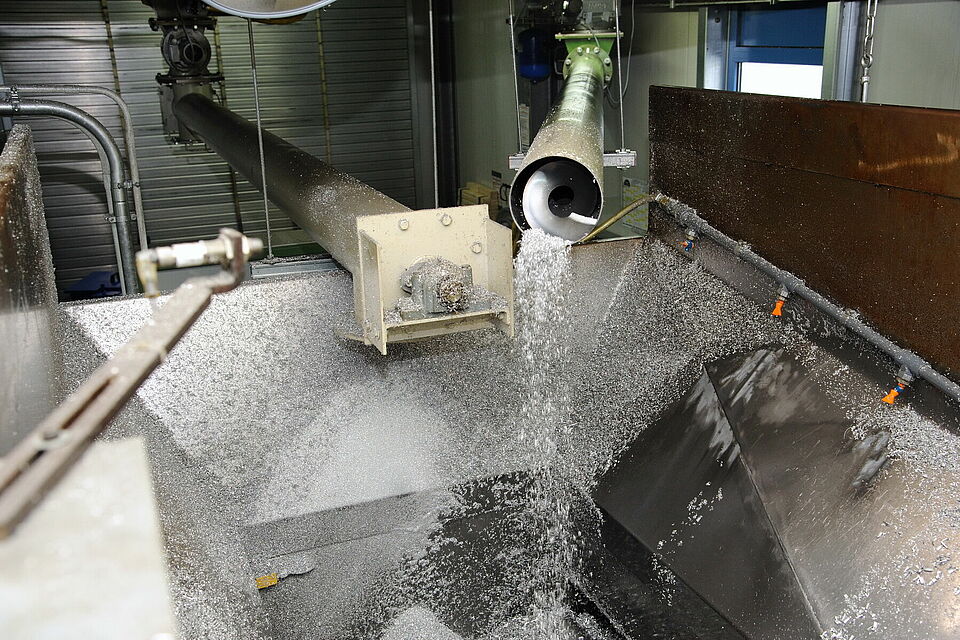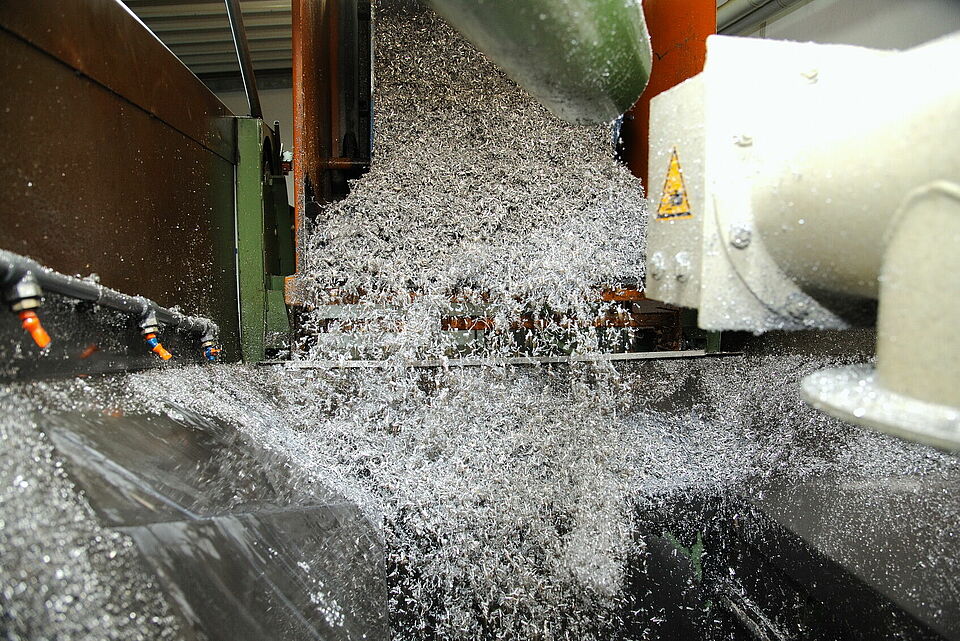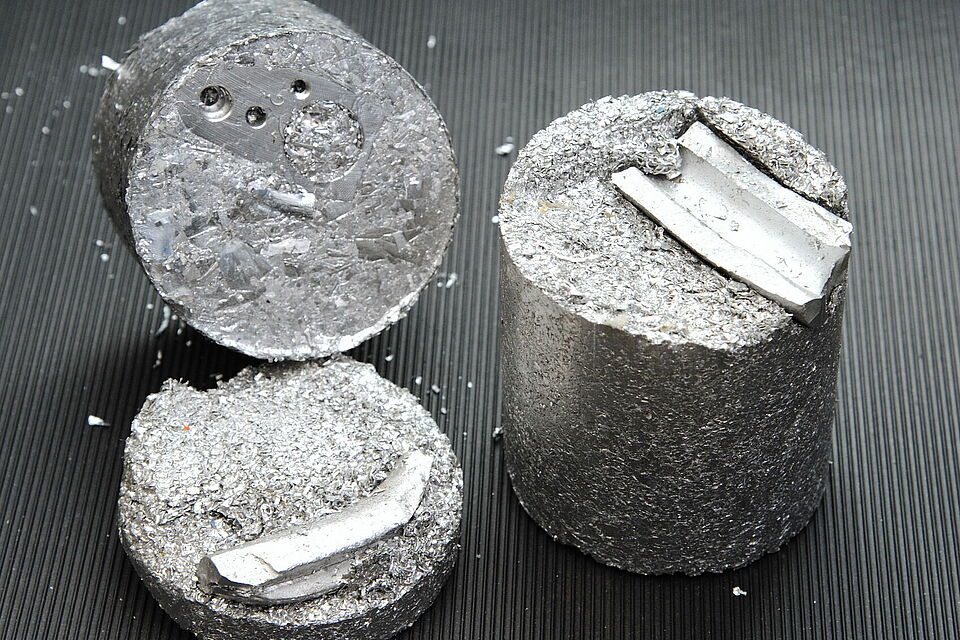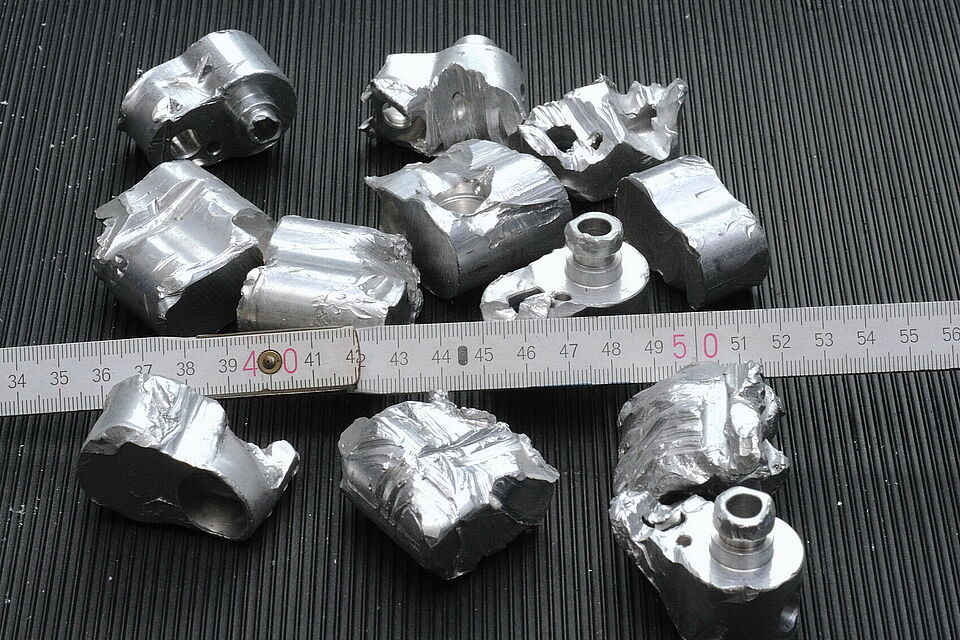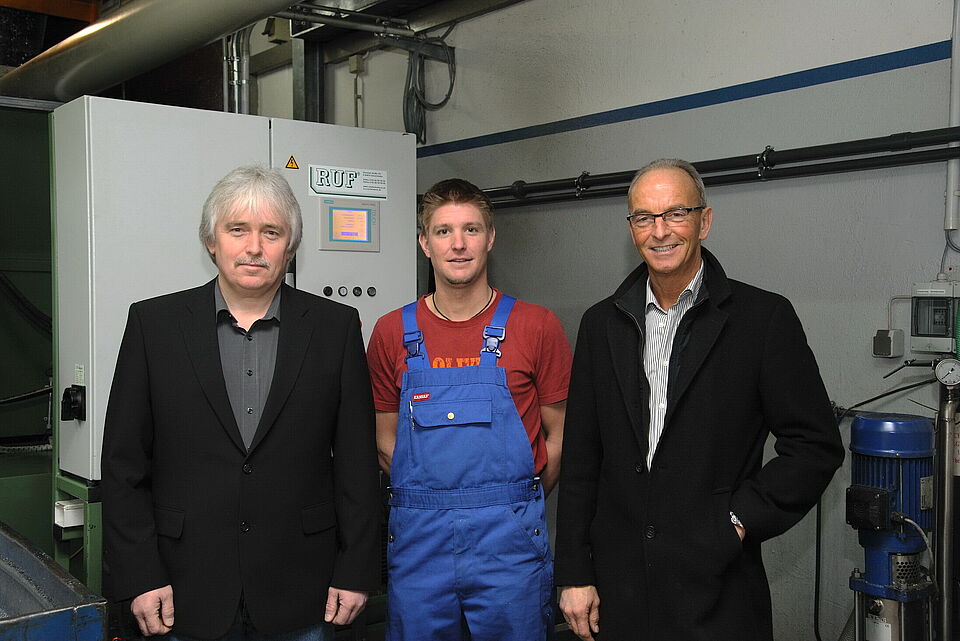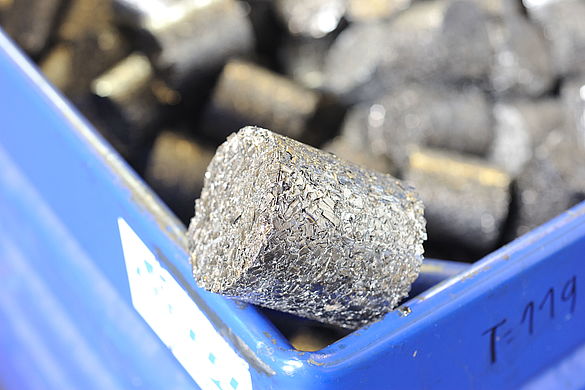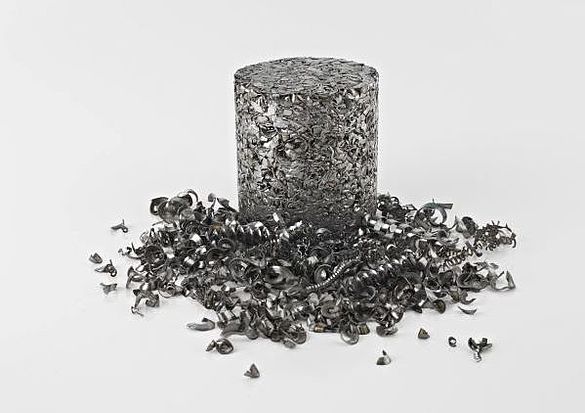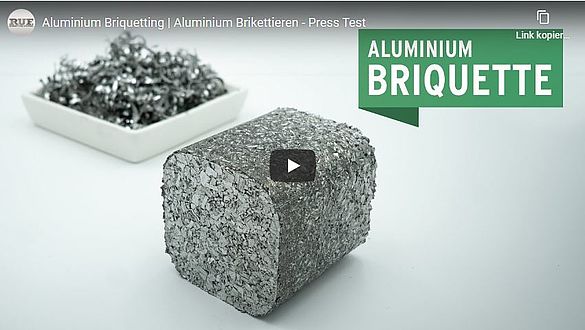The RUF system delivers smooth operations at SWG
One of RUF´s heavy duty briquetting systems is contributing enormously to efficient work processes at SWG Metallverarbeitung und Montagetechnik GmbH. The press reduces the volume of chips to almost a tenth of the original volume as well as recovering valuable cooling lubricant and is not knocked out of its stride by even the coarsest particles which can be found between the chips. In the meantime almost one million aluminium briquettes have been pressed by the RUF press at SWG.
SWG Metallverarbeitung und Montagetechnik GmbH has established itself in the 25 years since its foundation as one of the leading producers of construction fittings and accessories for shutters and awnings. The efforts the automobile industry are making in lightweight construction have opened a new market for this firm located in Herborn-Guntersdorf. At present products for the auto industry make up 60% of total turnover. Some of these products are vibration control technology components, which are used in die in power train elements, chassis frames, engines and drives, as well as connection components for air conditioning lines. Profiles and plates are machined for these purposes.
In 1985 the company’s founders Klaus Schell and Friedhelm Weyel (who came up with the name for their firm by combining the first letter of their respective surnames with the first letter of their firm‘s home town) decided to concentrate on Aluminium as their material of choice and it has paid off. In the meantime the company employs 75 people, and has a turnover of 13 million euro per year. Stephan Diehl, one of the managing directors of SWG reports: “One of our great strengths is that we can support our customers in developing components which are geared towards their market.“ This offer is being taken up more and more in the automobile industry.
SWG Metallverarbeitung und Montagetechnik GmbH …
… is an owner managed family business, which specialises in the production of precision parts made mainly from aluminium profiles but also from aluminium plates. The car and compact van sector of the automobile industry are responsible for about 60% of a turnover figure of over 13 million euro. In addition construction fittings, shutters and awnings as well as products for the aerospace and electronic industries are produced. SWG’s export ration lies at around 45%. All of the 75 employees work in the headquarters of the company in Herborn-Guntersdorf. Small, medium and large volume productions are machined on CNC as well as SPS controlled machining centers, CNC milling and drilling machines, fully automatic saws as well as pressing and assembly lines. Surface coatings such as anodising and varnishing are also included in the range of services.
The crusher was always breaking down
As a byproduct of the machining of roughly 2000 tons of aluminium per year through sawing, milling and drilling, one is left with a huge volume of chips- a total of 200 tons per year. In the beginning they were merely collected and sold to the scrap merchant. The disadvantage was that loose chips have a massive bulk volume and they still contain substantial amounts of cooling lubricant which was used during the machining process. Therefore SWG decided at an early stage to deal with this problem. As a result chips were pressed in-house from 1999 on. However the briquetting system in use in those days, which came from another producer, could not deal with coarse particles without help and a crusher was installed before the briquetting press. Briquetting brought with it a range of benefits: The volume of aluminium waste was drastically reduced, whereby transport and handling costs were also reduced and simultaneously a large percentage of the clinging cooling lubricant was recovered as part of the pressing process. A further side effect which paid off was the fact that aluminium briquettes could be sold for a much higher price than could be achieved for loose chips.
However there was one downside. “The process was very vulnerable to breakdowns with that particular constellation” Stephan Diehl remembers and continues: “One one hand wear and tear became more marked as time went on. And on the other hand -and this was even more problematic- the upstream crusher was regularly out of action.” As an unavoidable result of the production process diverse coarse particles were very often to be found between the aluminium chips -including fragments from defective components which could measure several centimeters. According to managing director Diehl they caused the crusher to stop several times every day. The result was of course downtime because the press had to be reversed and the coarse particles searched for and removed.
The RUF Press has no problem with any coarse particles
Because SWG wanted to stick with briquetting despite the mounting problems, they decided to look into other briquetting press producers and came into contact with RUF in 2007. Naturally because of their unhappy experiences with breakdowns SWG were never going to rely on statements from producers as to the efficiency of their system. Diehl travelled to RUF in Zaisertshofen with a selection of aluminium chips and various samples of coarse particles to watch test pressings, in order to ensure that this briquetting system would deal with the challenge without problems. “I think RUF‘s technicians were breaking out in a sweat a few times” remembers Diehl with a grin. “But the results were very positive, the press dealt with everything we threw at it and convinced us so much that we invested in purchasing this system.”
The final acceptance of the press by SWG took place in Zaisertshofen in June 2008 and it was set up in Herborn-Guntersdorf in the same month and commissioned. As a result of the responsible press operators being involved in the test pressings, very little instruction was needed before SWG could operate and maintain the system independently.
The old system which had been causing more and more problems was replaced and the crusher, which had been responsible for the majority of the downtime and which had an enormous energy consumption rate, could be done without completely. To bring about the best possible results in such a situation a briquetting press with a large briquette format was chosen for SWG, reports Ralf Lorbach technical consultant from Ruf: “To enable the system to press the coarse particles into the briquettes without problems, the briquette format has to be correspondingly large.” In addition the plan was to be prepared for possible increases in the amount of chips in the future. So it was decided to purchase a RUF 18.5/3700/100 system which outputs briquettes with a diameter of 100mm instead of 80mm. A word of explanation: The figures represent 18.5 kW drive capacity, a specific compaction pressure of up to 3700 kg/cm² and a 100 mm briquette diameter.

One Million Aluminium Briquettes pressed since 2008
In autumn 2012 the briquetting system pressed the one millionth aluminium briquette and was working just as reliably as on day one – without yet having to have a wear part like the press mould or the heading tool replaced.
Each hour the system presses roughly 150 kgs of aluminium chips, the density of the briquettes at 2.3 to 2.4 g/cm3 lies very close to that of the source material (about 2.7 g/cm3). The bulk volume sinks drastically through briquetting: when one considers that the figure for loose chips would be between 140 to 150 kg/m3, after briquetting 1200 to 1300 kg/m3 is achieved.
One of the particularities of the operation at SWG is that the press has to deal with very varying types of aluminium chips. For example the material from the sawmill where work is carried out with minimal amounts of lubrication, is fed continuously through a pipe to the press. Chips from drilling and milling which have significant amounts of emulsion clinging to them are transported in batches to the press in a transport container. If the dry chips from the sawmill were pressed with the same high pressure as the wetter chips you would experience cold welding explains Ralf Lorbach. This means that the dry chips would liquefy and stick to the inner wall of the press mould. Therefore the briquettes would not be able to be squeezed out of the press mould and a defective press would be the end result. To prevent this, some of the pressed out and collected lubrication fluid is injected into the chip hopper so that the dry saw chips will be damp enough before they are fed into the press.
The pressed out lubrication is worked on by SWG and recycled back into the production process. That is not only good news for the environment; it also reduces the expense for purchasing lubrication fluid substantially. “We are extremely happy with the briquetting system. The investment has been well worth it.”, Stephan Diehl the managing director of SWG sums up.

